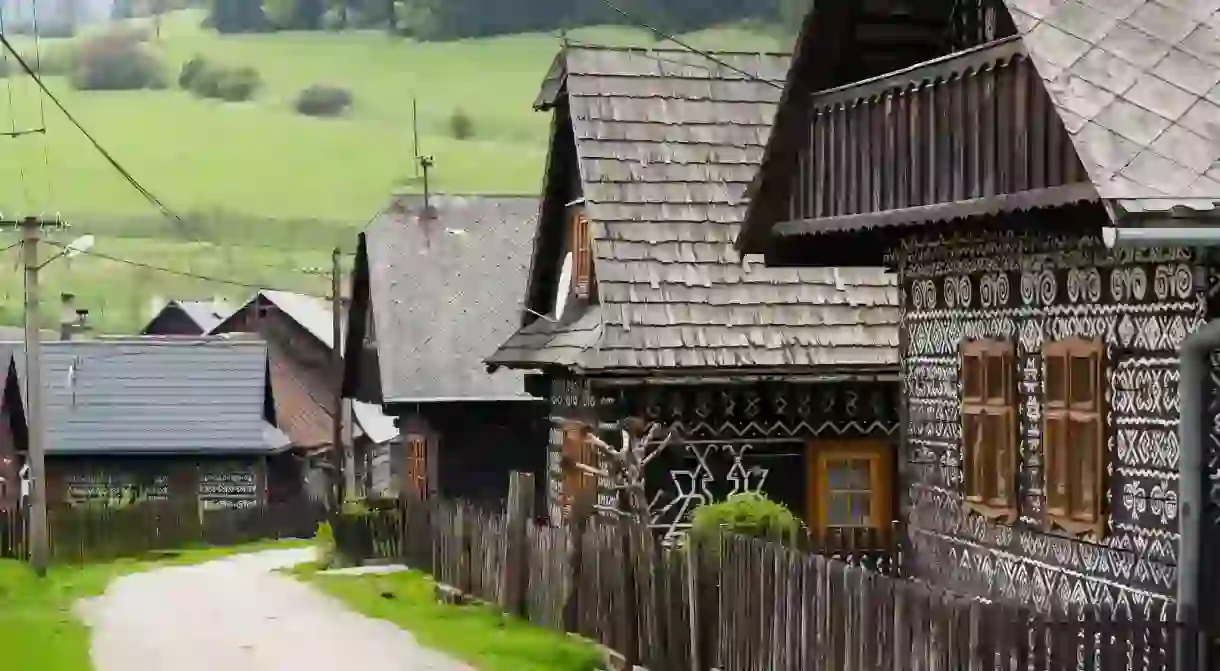How to Celebrate Carnival Like a Local in Slovakia

In Slovakia, Carnival is a special time of year full of eating, drinking, and cultural traditions. As elsewhere, the Carnival season lasts from Epiphany in January until Ash Wednesday. Known as Fašiangy in Slovakia, the Carnival season was historically a time to enjoy eating and drinking to one’s heart content, as the start of the Lenten season meant a strict fast for forty days. If you travel to Slovakia during the Carnival season, here are our best tips for how to celebrate and enjoy the season like a local.
Processions in the streets
From large cities to small towns, most places in Slovakia hold some sort of Carnival procession on the last four days of the Carnival season. Children really look forward to and enjoy Carnival, often preparing their costumes several months in advance. Children are typically encouraged to dress up for school on the last Tuesday (“Fat Tuesday”) of the Carnival season, and most towns hold a Carnival procession with everyone dressed in costumes, traditional Slovak folk embroidery, or masks.
These processions can be a really fun and unique way to interact with the locals, so if you are in Slovakia during the last few days of Carnival, make sure to seek one out in the town where you’re staying. You’ll need to head away from the metropolis of Bratislava and into the smaller surrounding towns and villages to get a more authentic Slovak Carnival feel; perhaps try Poprad, Presov, or Rimavska Sobota.
https://www.instagram.com/p/BRn99zJhKha/?tagged=fasiangy
Masquerade balls
Even in small towns in Slovakia, Carnival Balls are eagerly anticipated events, where the ladies dress up in floor-length gowns and the men wear their best suits. Often, attendees are encouraged to don a mask. The typical Carnival Ball takes place in a nicely decorated community center or restaurant and includes eating, drinking, and staying out until the early hours of the morning. While the event is kid-friendly until about midnight, by midnight all of the children have gone home or to grandma and grandpa’s house to spend the night so that the adults can enjoy the party; this either has a live DJ or a live band to keep the dance floor going until 3 or 4am!
Folk dancing
Folk dancing is popular during any time of year in Slovakia, but especially during Carnival. If visiting on the weekend before Carnival, you will surely see groups of dancers in the streets dancing just for fun and at the local community centers that give special Carnival performances.
https://www.instagram.com/p/BRTyZ1HgYSE/?tagged=fasiangy
The pig slaughter
A typical Carnival tradition in the small towns and villages of Slovakia is a pig slaughter. Pig slaughters bring communities together, as the men work to kill and clean the pig and then the women assist with preparing products made from the pig such as sausages and smoked meat. If you are in Slovakia during the Carnival season, you might be lucky enough to attend a pig slaughter, which is not a sad event at all (well, only for the pig) and instead feels a lot like a local neighborhood party.
https://www.instagram.com/p/BQvwBNsjQWu/?tagged=fa%C5%A1iangy
Donuts and other sweets
In addition to all of the traditional Slovak favorites, during Carnival time, you can find some extra special treats in which to indulge. We highly recommend šišky; these are homemade donuts with a jelly filling, traditionally only prepared during Carnival season. The donuts are typically stuffed with apricot jam and go perfectly with a warm cup of coffee on a cold day. You’ll find many other donuts, strudels, and fried cakes on offer in bakeries and restaurants during this period, as Slovaks enjoy butter and fat before the Lenten period.
https://www.instagram.com/p/BQ5OABWFh8M/?tagged=%C5%A1i%C5%A1ky













